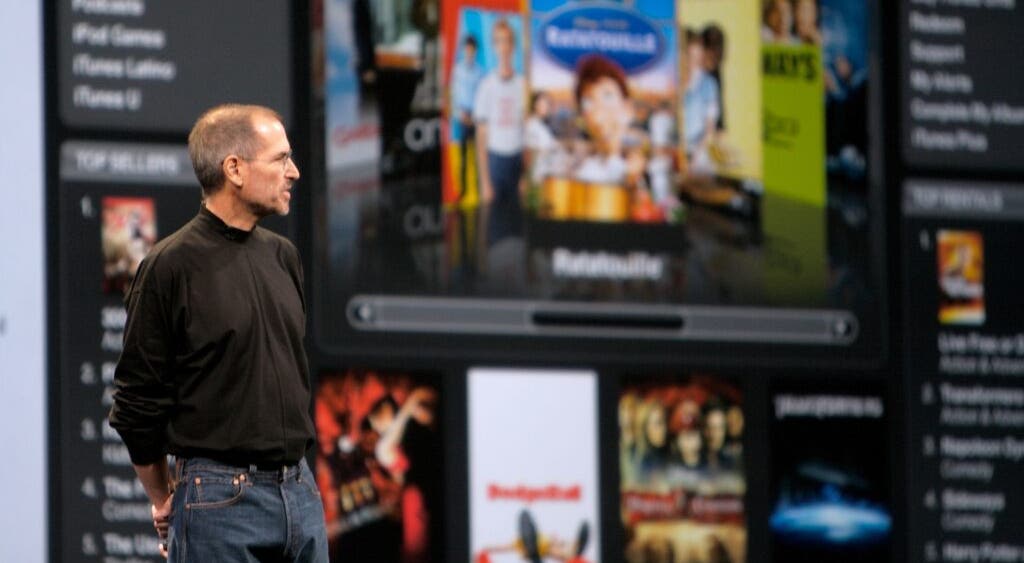
Apple Inc. AAPL set the stage for a music revolution about 23 years ago with the launch of iTunes. Originally introduced as a music player for Mac users, iTunes profoundly reshaped how people consumed music, leaving an indelible mark on the industry over the subsequent decade.
Like several other successful projects under Steve Jobs’ leadership, iTunes was a formidable undertaking. Recognizing the potential of a digital music marketplace, he deftly orchestrated negotiations with five music labels, a task that presented no small challenge.
After arduous negotiations, Apple signed on Warner Music, Universal, BMG, EMI, and Sony, and in April 2003, the iTunes Music store was unveiled, boasting a catalog of 200,000 songs.
The Dawn of a Musical Revolution
On Jan. 9, 2001, iTunes made its debut. A little over two years later, the iTunes store was born, granting users the ability to purchase and download individual tracks and albums. This move heralded the era of digital music, dismantling existing barriers and lessening reliance on music CDs.
See Also: If You Invested $1000 In Apple When It Announced NeXT Acquisition To Bring Back Steve Jobs, Here’s How Much You’d Have
The evolution of the iTunes store over the years expanded its offerings to include music videos, TV shows, podcasts, and more. By enabling users to cherry-pick songs, it enabled music labels to recoup lost revenues due to piracy, a significant breakthrough that shook the industry.
With the iPod complementing iTunes, Apple ascended to become the premier U.S. music vendor in April 2008. Fast forward to February 2010, and the company emerged as the largest music vendor globally, having sold a staggering 10 billion songs.
Apple’s stock, adjusted for stock splits and other corporate actions, was $0.30692 on Jan. 9, 2001.
Fast forward 23 years, and its stock price sits at $185.56 — a remarkable surge of 60,359% during this period.
If you had invested $1,000 in Apple stock on Jan. 9, 2001, today, that would translate to $604,588, an extraordinary return over two decades.
Embracing the Future
Since their inception, both the iTunes software and the music store have made significant strides. In the first decade post-launch, iTunes facilitated the sale of over 25 billion songs globally, leaving an indelible mark on music enthusiasts.
However, the evolution of iTunes saw the division of music, TV shows, and podcasts into their separate apps.
Apple Music stands as the spiritual successor to iTunes, offering users the chance to indulge in their favorite tunes, albeit now through a subscription service.
For aficionados of music purchases, it’s still possible to do so by searching through the Apple Music app and making the purchase from the iTunes store.
Check out more of Benzinga’s Consumer Tech coverage by following this link.
Read Next: If You Invested $1,000 In Microsoft When Windows 2.0 Was Launched, Here’s How Much You’d Have Today
Photo: Courtesy Tom Coates on Flickr



